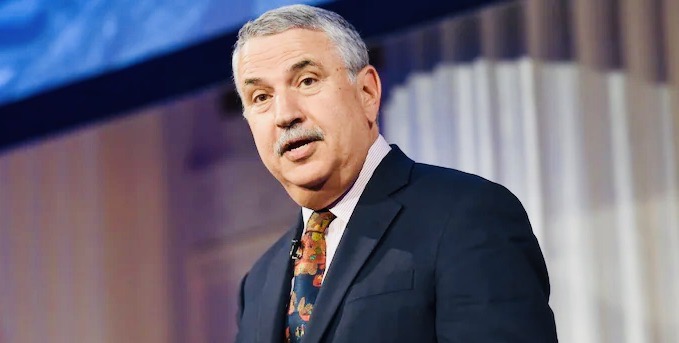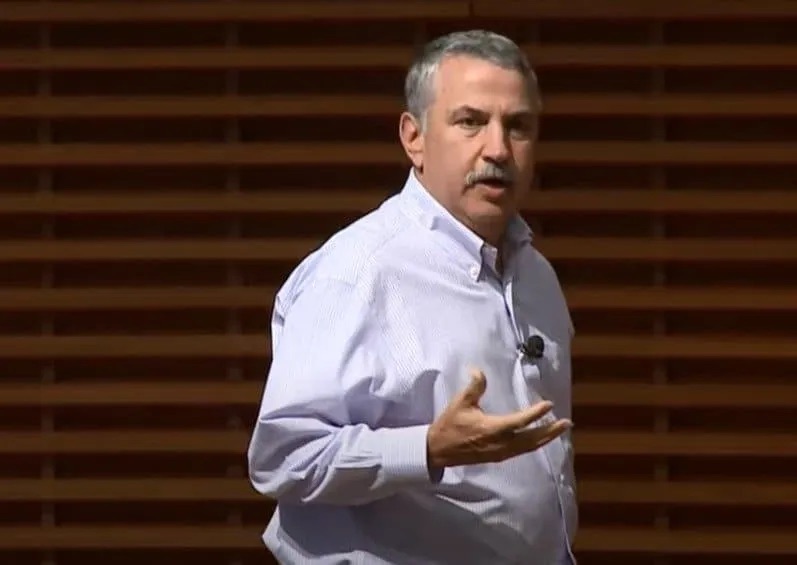The award-winning columnist of The New York Times, Thomas Friedman, fears that Israel’s future as a liberal democratic state may be imperilled by the radical judicial reforms Prime Minister Benjamin Netanyahu’s far right-wing government wants to phase in.
Friedman, the newspaper’s former bureau chief in Israel and Lebanon, told an Americans for Peace Now webinar on March 1 that Israel, until now, has functioned as a democracy in an autocratic region.
But with Netanyahu having announced his intention to overhaul the judicial system, thereby stripping the Supreme Court of its independence and powers, strengthening the government’s executive branch, and leaving the political system without real checks and balances, Israel could be heading in a new authoritarian direction.
Netanyahu — Israel’s longest-serving prime minister — is attempting to change the structure of the state and tilt the system for his own political benefit. All the while, he innocuously claims that the changes he desires are of a minor nature, said Friedman, who won the Pulitzer Prize for his reports and commentaries on the Middle East in 1983, 1988 and 2002.
“In other words, none of this judicial ‘reform’ is on the level,” he wrote in one of his most recent columns. “It is a power play that Netanyahu wants so that with a flick of his wrist — a simple one-seat majority vote in the Knesset — he can overturn anything the Supreme Court orders.”
At present, Netanyahu is on trial, having been charged by the attorney-general with three counts of corruption. If found guilty, he could be sent to prison. The legislation he trying to pass could be instrumental in exonerating him.
Friedman, 69, is concerned that the country he is so familiar with may be vanishing before his eyes. As he put it,”I fear that the Israel I knew I may not be able to pass on to my kids.”
According to Friedman, the author of From Beirut To Jerusalem, Israel’s right-wing, centrist and left-wing opposition parties will be able to form a stable majority in the Knesset only if they enlist Israeli Arab parties in their coalitions.
Friedman urged Israeli Jews and Arabs to work together in a common cause to achieve this objective.
When the Israeli Arab parliamentarian Mansour Abbas joined the previous, short-lived government, led by Naftali Bennett and Yair Lapid, Netanyahu disingenuously accused them of working with the anti-Israel Muslim Brotherhood. But as Friedman pointed out, Netanyahu himself attempted to recruit Abbas, who rejected his overture.
Calling out this contradiction, Friedman tore into Netanyahu, accusing him of being a “practised and professional liar.”

“You’ve got to pay attention to every word that comes out of his mouth,” he added.
Turning to Israel’s relations with the United States, Friedman said Washington may have to “reassesses” ties with Israel if it ceases to be a genuine democracy. But even under such circumstances, the United States should not withhold aid to Israel, which has been an “amazing” strategic partner.
Friedman urged American Jews opposed to Netanyahu’s policies to apprise the Democratic Party of their dissatisfaction with recent developments in Israel.
By his reckoning, Netanyahu is counting on the Republican Party, evangelical Christians and some Democrats to support his agenda.
Friedman does not believe that the United States is currently prepared “to throw down the gauntlet,” or stand up to Israel, should their paths diverge.
In his view, a two-state solution would foster coexistence between Israel and the Palestinians. He thinks it is shameful that the Palestinian question was not an issue in the last five Israeli general elections.
